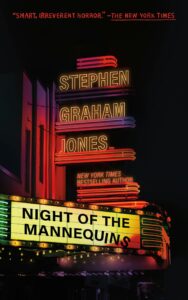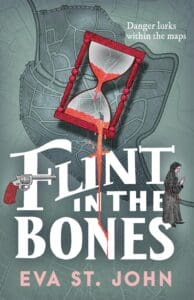
Synopsis
Vicken has a plan: throw himself into the Saint Lawrence River in Montreal and end it all for good, believing it to be the only way out for him after a lifetime of depression and pain. But, stepping off the subway, he finds himself in an endless, looping station.
Determined to find a way out again, he starts to explore the rooms and corridors ahead of him. But no matter how many claustrophobic hallways or vast cathedral-esque rooms he passes through, the exit is nowhere in sight.
The more he explores his strange new prison, the more he becomes convinced that he hasn’t been trapped there accidentally, and amongst the shadows and concrete, he comes to realise that he almost certainly is not alone.
A terrifying psychological nightmare from a powerful new voice in horror.
Review
The conceit of Sofia Ajram’s Coup de Grâce is so simple and brilliant that it carries the reader down its empty corridors with incredible ease. The conceit: the character finds himself in a location that acts as objective correlative for his emotional state. In this case, Vicken’s chronic depression, having reached suicidal proportions, is figured as an endless series of brutalist public spaces: train station stairways, hallways, and atriums, all hauntingly eery in their liminal, fluorescent-lit emptiness.
The conceit also happens to be one shared by Franz Kafka in works such as The Castle and The Trial, where the landscapes mirror and dramatize the anxiety and hopelessness of the protagonists. There’s a lot of Kafka in Coup de Grâce, which is an incredible compliment, but also a remarkable challenge. As in Kafka’s novels, there is very little in the way of traditional plot, and–despite multiple allusions–Ajram’s novel doesn’t even make use of the Dantean shape of the descent. In this space, up and down become mere abstractions. There’s nowhere to go once you’ve hit rock bottom, after all.
Kafka makes up for the rambling plotlessness of his novels with his distinctive brand of gallows humor. Coup de Grâce is rarely “funny,” but instead makes up for its narrative aimlessness with a lyrical style that is at once beautiful and challenging. I’m never quite sure what one means when they refer to prose as “poetic,” but it aught to mean something like this: there is a pleasure to be taken in the wrestling with the language that rises above the mere level of sense. By that definition, Coup de Grâce is poetic. It’s language moves in and out, deeply allusive, churning up language that is both startling in its clarity and sometimes almost utterly opaque.
Ajram also experiments with structure, at one point letting Vicken completely cede control over his choices to the reader, creating a kind of choose your own adventure which–still grounded in the book’s bedrock of depression–offer no good options. In another section, the narrative takes the form of a game from urban legend, as Vicken finds himself in an elevator talking to a service assistant in a conversation that is the book’s most explicitly “Kafkaesque” moment.
If there is one failing for this reader, it was Vicken’s own recognition of his location’s narrative use as objective correlative. Discussions of how the landscape mirrored his own emotional and physical struggles with a lifetime of depression detracted rather than added to the novel’s symbolic heft. There’s a sense in which I felt that Ajram didn’t quite trust the allegory to do its work on its own, and it’s this retreat into exposition that bogged down the movement of the story in a few places.
That said, Coup de Grâce is an inventive and compelling journey through the heart of depression, written in language that is fresh and surprising, and pulling no punches. It won’t be a book for everyone, but it won’t be soon forgotten.








Leave a Reply